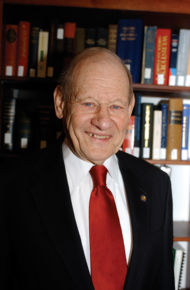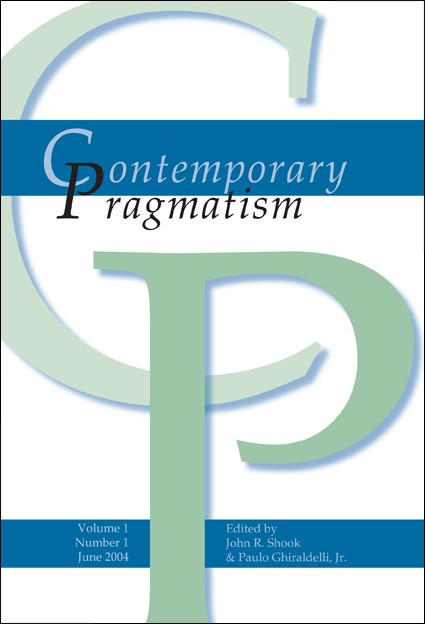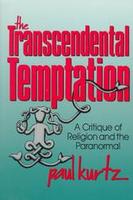 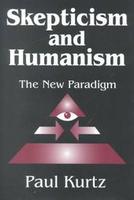 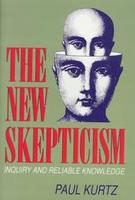  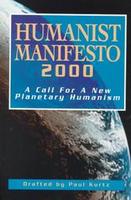 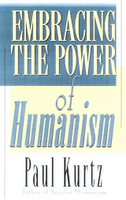 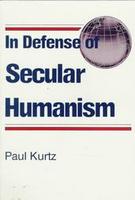 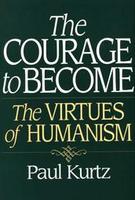 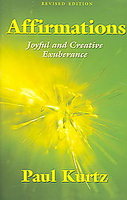 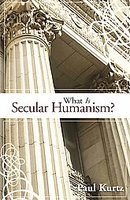 |
Brief Biography
Paul Kurtz was born on 21 December 1925 in Newark, New Jersey. He died on October 20, 2012 in Amherst, New York. He received his BA from New York University in 1948, then went to Columbia University, where he earned his MA in 1949 and his PhD in philosophy in 1952. The title of his dissertation was “The Problems of Value Theory.” From 1952 to 1959, Kurtz taught at Trinity College in Connecticut. He then was a professor of philosophy at Union College in New York State from 1961 to 1965, and during that time he also was a visiting lecturer at the New School for Social Research. In 1965 Kurtz became professor of philosophy at the State University of New York at Buffalo, and taught there until retiring in 1991. Kurtz was a fellow of the American Association for the Advancement of Science since 1992. He authored or edited over forty books and many hundreds of articles.
Kurtz carried on the legacy of the pragmatic and humanistic naturalism that he acquired while at Columbia University. Committed to the superior rationality of scientific inquiry, he staunchly defended science and reason against all forms of superstition, mythology, and fraudulent deception. He joined the leadership of the American Humanist Association in 1967. In 1969 he founded a publishing company, Prometheus Books, which presently operates in Amherst, New York. Kurtz was the founder and longtime chair of the Center for Inquiry in Amherst, New York, and he led its associated organizations, most notably the Committee for Scientific Inquiry (founded in 1976 as Committee for the Scientific Investigation of Claims of the Paranormal) and the Council for Secular Humanism (founded in 1980 as the Council for Democratic and Secular Humanism). He also was the editor-in-chief of the magazine Free Inquiry. He was co-President of the International Humanist and Ethical Union, and was a Humanist Laureate and President of the International Academy of Humanism. After his resignation from all positions with the Center for Inquiry in 2009, he founded the Institute for Science and Human Values in 2010.
Kurtz argued for a comprehensive philosophy of secular humanism in his many books. Long involved with the American Humanist Association, he co-authored the Humanist Manifesto II with Edwin Wilson in 1973. Humanist principles such as grounding morality in human happiness and not supernatural revelation, and demanding respect for individual liberty, support an active democratic culture that encourages free participation by all citizens. Humanistic ethics in Kurtz’s hands takes a broadly utilitarian concern for the long-term welfare of all people, but delimits this utilitarianism by appeal to basic liberty rights, a cosmopolitan outlook on the urgency for global peaceful cooperation, and adds a communitarian respect for socio-cultural groups.
Several of his books present his philosophical views of science, naturalism, ethical theory and political theory. In the areas of philosophy of science and naturalism, central works are The Transcendental Temptation: A Critique of Religion and the Paranormal (1986), Philosophical Essays in Pragmatic Naturalism (1991), The New Skepticism: Inquiry and Reliable Knowledge (1992), and Skepticism and Humanism: The New Paradigm (2001). Other books develop his humanistic ethics: Forbidden Fruit: The Ethics of Humanism (1987), Eupraxophy: Living without Religion (1989), The Courage to Become: The Virtues of Humanism (1997), and Affirmations: Joyful and Creative Exuberance (2004).
Books about Paul Kurtz include Toward a New Enlightenment: The Philosophy of Paul Kurtz (Transaction, 1994), and Promethean Love: Paul Kurtz and the Humanistic Perspective on Love (Cambridge Scholars Press, 2006).
Paul Kurtz's Books
This is a selected list of Paul Kurtz's major writings. Please consult Media-graphy: A Bibliography of the Works of Paul Kurtz, Fifty-One Years: 1952-2003 (Center for Inquiry, 2004).
Kurtz, Paul. Meaning and Value in a Secular Age: Why Eupraxsophy Matters. Edited by Nathan Bupp. Amherst, N.Y.: Prometheus Books, 2012.
Kurtz, Paul. Multi-Secularism: A New Agenda. New Brunswick, N.J.: Transaction Books, 2010.
Kurtz, Paul. Exuberant Skepticism. Edited by John R. Shook. Amherst, N.Y.: Prometheus Books, 2010.
Kurtz, Paul. What Is Secular Humanism? Amherst, N.Y.: Prometheus Books, 2007.
Kurtz, Paul. Affirmations: Joyful and Creative Exuberance, Revised Edition. Amherst, N.Y.: Prometheus Books, 2005.
Kurtz, Paul. Skepticism and Humanism: The New Paradigm. New Brunswick, N.J.: Transaction Books, 2001.
Kurtz, Paul. Humanist Manifesto 2000: A Call for a New Planetary Humanism. Amherst, N.Y.: Prometheus Books, 2000.
Kurtz, Paul. Embracing the Power of Humanism. Lanham, Md.: Rowman & Littlefield, 2000.
Kurtz, Paul. The Courage to Become: The Virtues of Humanism. New York: Praeger/Greenwood, 1997.
Kurtz, Paul. The New Skepticism: Inquiry and Reliable Knowledge. Amherst, N.Y.: Prometheus Books, 1992.
Kurtz, Paul. Philosophical Essays in Pragmatic Naturalism. Amherst, N.Y.: Prometheus Books, 1991.
Kurtz, Paul. Eupraxophy: Living Without Religion. Amherst, N.Y.: Prometheus Books, 1989. Reprinted as Living without Religion: Eupraxophy (1994).
Kurtz, Paul. Forbidden Fruit: The Ethics of Humanism. Amherst, N.Y.: Prometheus Books, 1987. Reprinted (2008).
Kurtz, Paul. The Transcendental Temptation: A Critique of Religion and the Paranormal. Amherst, N.Y.: Prometheus Books, 1986.
Kurtz, Paul, et al. Humanist Manifestos I and II. Amherst, N.Y.: Prometheus Books, 1984.
Kurtz, Paul. In Defense of Secular Humanism. Amherst, N.Y.: Prometheus Books, 1983.
Kurtz, Paul. A Secular Humanist Declaration. Amherst, N.Y.: Prometheus Books, 1980.
Kurtz, Paul. Exuberance: An Affirmative Philosophy of Life. Amherst, N.Y.: Prometheus Books, 1977.
Kurtz, Paul. The Fullness of Life. Amherst, N.Y.: Prometheus Books; New York: Horizon Books, 1974.
Kurtz, Paul. The Humanist Alternative. Amherst, N.Y.: Prometheus Books; London: Pemberton Books, 1973.
Kurtz, Paul. Decision and the Condition of Man. Seattle: University of Washington Press, 1965.
Media and Lecture Appearances
Paul Kurtz was the author or editor of 50 books and over 800 articles and reviews. Newspaper stories and interviews with him have appeared in the New York Times, Time magazine, the Wall Street Journal, Forbes magazine, Washington Post, Associated Press, Panorama (Italy), Readers Digest, Los Angeles Times, US News & World Report, Buffalo News, TV Guide, Chicago Tribune, TWA Ambassador, American Way (American Airlines), Washington Times, Newsday, Newsweek, Le Monde, Publishers Weekly, Christianity Today, Toronto Globe & Mail, Toronto Star, Hartford Courant, Pravda, Investia, Atlanta Constitution, Science News, Boston Globe, Minneapolis Star Tribune, Times of India, San Diego News, Philosophy Now, et al.
He appeared on many major TV and radio programs in North America and worldwide, including National Public Radio, HBO, CNN, FOX, ABC, CBS, NBC, Today Show, Good Morning America, Nightline, Meet the Press (Los Angeles), Voice of America, Mike Wallace, Michael Jackson, Phil Donohue, Associated Press Radio, Dateline (ABC), BBC, CBC (Canada), AM Canada, ABC (Australian Radio), Smithsonian Radio, Science Friday (NPR), Milt Rosenberg (Chicago), Merv Griffith, Paul Harvey, Barry Farber Show, MacNeil/Lehrer Report, Larry King Live, The 700 Club, Sally Jesse Raphael, Unsolved Mysteries, Oprah Winfrey, RAI TV (Italy), Brazilean, Korean, Russian, French, German TV, and many more.
Paul Kurtz lectured widely in North America and throughout the world, including Oxford, Cambridge, University College (London), University of London, La Sorbonne, University of Heidelberg, Free University of Brussels, University of Warsaw, Cleveland State University, University of Iowa, Franklin & Marshall College, Sydney (Australia), Beijing and Shanghai Universities, Moscow State University, St. Petersburg University, Utrecht University, Keele University, Trinity College (Dublin), Williams College, Brock University, University of Toronto, York University, Stanford, Harvard, Princeton, University of Chicago, Rutgers, UCLA, University of Southern California, University of California (Irvine, San Diego, Berkeley), San Francisco State, City University of New York, University of Nevada, Columbia, New York University, American University, George Washington University, Richmond University, Temple University, The Franklin Institute, The Smithsonian, University of Illinois, University of Colorado, University of Kansas, and dozens more colleges and universities.
|
